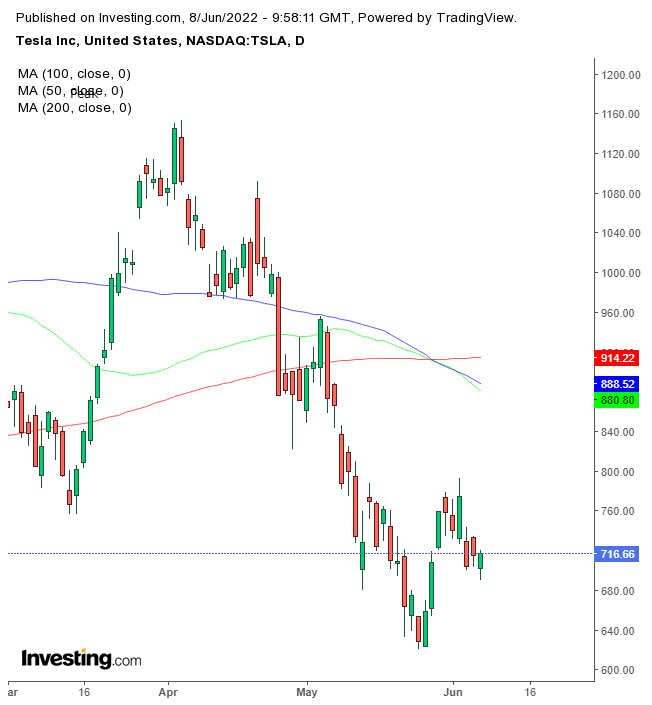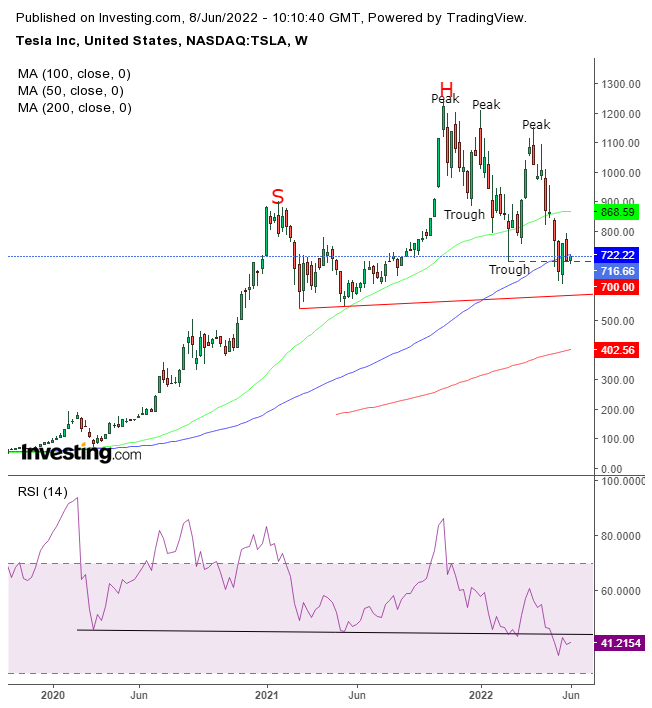United Homes Group stock plunges after Nikki Haley, directors resign
Shares of electric vehicle maker Tesla (NASDAQ:TSLA) have been struggling since late 2021. However, after CEO Elon Musk shocked markets on Apr. 4, by revealing he's the largest shareholder of social media platform Twitter (NYSE:TWTR), with a more than 9% stake, TSLA stock has lost nearly half its value, dropping almost 46% lower by May 24, when shares were at their recent lows.
Yesterday, TSLA closed about 37% below the Apr. 4 price, having rebounded from a lower open after Musk's lawyers indicated he might be abandoning the Twitter deal.
Tesla shareholders haven't been pleased with CEO Musk's Twitter aspirations: they're not supportive of the potential debt load Musk would incur because of the deal, nor do they appreciate the CEO's divided attention along with his crusade to take Twitter private. As well, Musk sold $8.5 billion in Tesla shares to help finance the initiative and the oversupply weighed on the stock price.
At the time of publication, Musk is threatening to walk away from the deal, claiming that Twitter is "actively resisting and thwarting his information rights," per their agreement, specifically regarding spam bots. It's not clear whether he'll be able to extricate himself without financial damage. However, if the technicals are correct, the stock will continue to face pressure. It's caught in a downward trend and burdened by negative momentum.

The 50 DMA has crossed below its 200 DMA, triggering a Death Cross. Then, the 100 DMA followed suit, placing each MA below its longer peer—a bearish formation that mimics recent pricing, which continues weakening.
The longer-term view indicates larger technical forces may also be in play.

First, the trend reversed, with a descending series of peaks and troughs. The May low registered the second trough independent of the previous trend, establishing a downtrend by even the most conservative standards.
The price is struggling beneath the 100-Week MA after falling below the 50-Week MA. The price may also be forming a sizeable H&S top since the beginning of 2021.
The RSI fell below its support over the same period and even longer—since the March 2020 bottom—suggesting the price may do the same, cutting through the potential neckline of the top. However, if it develops an H&S top, the price could bounce again before completing the reversal pattern.
Trading strategies
Conservative traders should wait for the H&S pattern to complete before risking a short position.
Moderate traders could risk a short sell if the price falls below the May low.
Aggressive traders could enter a long contrarian position, counting on a bounce above the H&S neckline, before joining the rest of the market with a short.
Trade Sample – Aggressive Long Contrarian Position
- Entry: $700
- Stop-Loss: $690
- Risk: $10
- Target: $750
- Reward: $50
- Risk-Reward Ratio: 1:5
